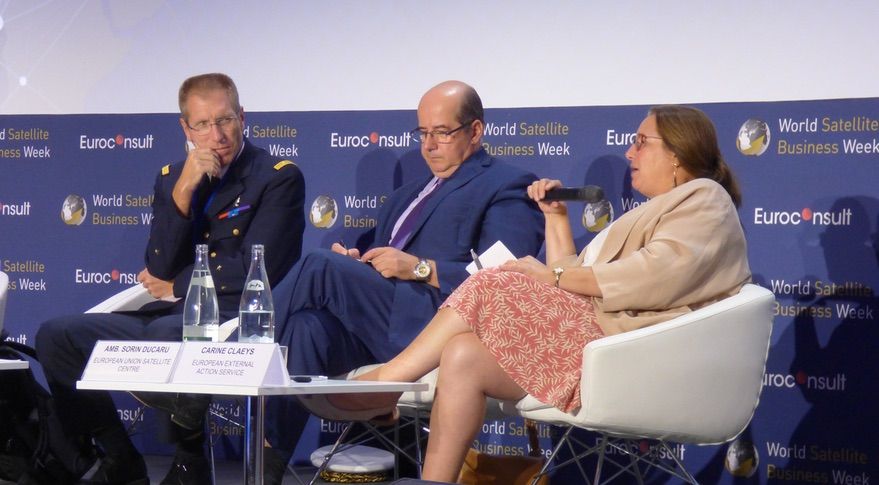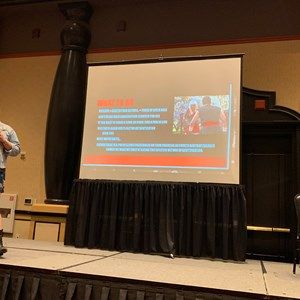PARIS — The European Union’s equivalent of a foreign ministry is starting a new effort to promote the need for sustainable space operations, but that effort will not initially include any new regulation of European satellite operators.
Carine Claeys, special envoy for space and head of the Space Task Force for the European External Action Service, said in a Sept. 13 panel discussion at Euroconsult’s World Satellite Business Week that the Safety, Security and Sustainability of Outer Space (3SOS) public diplomacy initiative will promote “ethical conduct” in space amid concerns about orbital debris.
The acronym, she noted, has a second meaning. “It is also three times SOS,” she said, “to create the case and a sense of urgency.”








